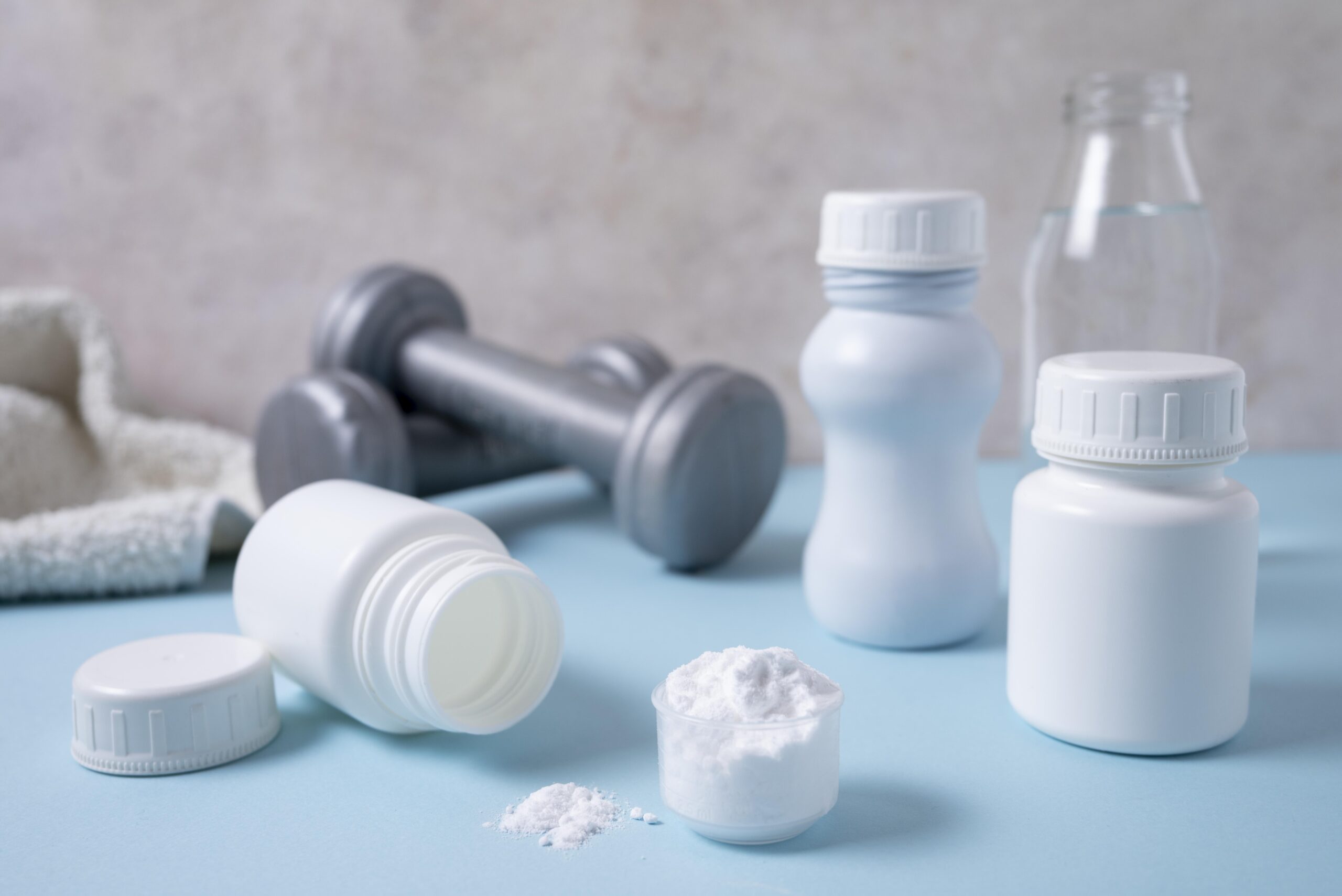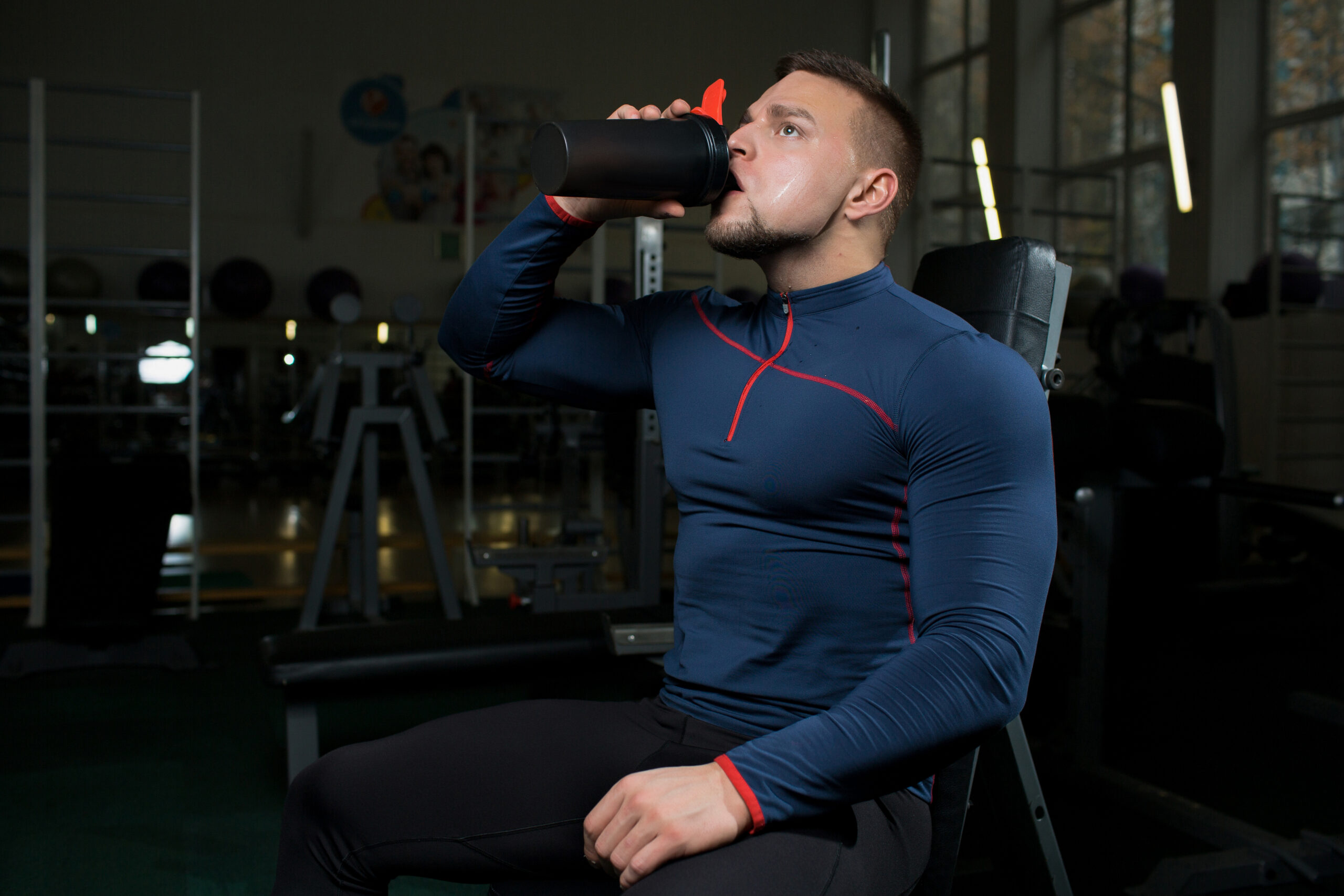Fitness Enthusiasts: How Much Water Should You Drink on Creatine?
Are you taking creatine and wondering if you’re drinking enough water? You’re not alone. For many fitness fans, it can help increase strength, improve endurance, and speed up recovery. But to get the best results, staying hydrated is essential! Taking it pulls water into your muscles, which means you need to drink more than usual to avoid dehydration and stay safe. Let’s dive into how much water you should drink on creatine.
1. What is Creatine and Who is it for?
It is a natural compound in our muscles that fuels short, intense activities like sprinting or lifting weights. Many athletes and fitness enthusiasts take it to increase their strength and endurance. It’s generally safe for healthy adults, but if you’re unsure, it’s always wise to talk to your doctor before starting.
2. How Does It Work?
It works by increasing energy in your muscles, which it does through ATP (adenosine triphosphate), the body’s main energy source. When you have more ATP, you can lift heavier, push harder, and recover faster after exercise.
3. Benefits of Taking Creatine

- Increases Muscle Strength and Power: It gives your muscles a quick energy raise to lift heavier weights and push harder.
- Improves Exercise Performance: Taking it helps you work out longer, which is great for both strength and endurance training.
- Improves Brain Power: It isn’t just for muscles; it may also help your brain stay sharp and focused.
- Speeds Up Muscle Recovery: After a tough workout, it helps your muscles recover faster so you’re ready for the next session
4. How to Take Creatine?
- Loading Phase: For the first 5-7 days, take around 20 grams of it a day, split into four smaller doses. This fills your muscles with it quickly
- Maintenance Phase: After the loading phase, take a smaller dose of 3-5 grams daily to maintain steady levels.
- Avoid Overdosing: Stick to the recommended dose. Taking more creatine doesn’t mean better results; it could lead to stomach discomfort. And remember, staying hydrated is key!
5. When to Take Creatine?
You can take it before or after a workout, or with a meal. What’s important is consistency. Find a time that works best for you and stick to it daily.
6. Possible Side Effects
Most people don’t have issues with it, but some may feel bloated or get cramps. Staying hydrated can help prevent these problems and keep your body balanced.
Also read an Article on: Preventing Heat-Related Illnesses By Staying Hydrated
7. Why Drinking Water While Taking Creatine is Important?

It pulls water into your muscles, which can lead to dehydration if you’re not drinking enough water. Drinking plenty of water on creatine helps your muscles work well and supports your kidneys, which process it in your body.
8. How Creatine Affects Water Retention?
It can cause water retention in your muscles, making them look fuller and stronger. But to prevent dehydration, especially during workouts, drink plenty of water throughout the day.
9.How Much Water Should You Drink On Creatine?
- Loading Phase: Drink at least 3-4 liters (12-16 cups) of water each day. This extra water helps because your muscles are absorbing more of it and water.
- Maintenance Phase: Aim for 2-3 liters (8-12 cups) of water daily. If you’re training hard or it’s a hot day, consider drinking a little more.
10. Factors to Consider for Staying Hydrated
- Body Weight: Bigger people often need more water. If you’re heavier, aim for the higher end of daily water recommendations.
- Climate: In hot or humid weather, you lose more water through sweat. So, drink more water to stay hydrated.
- Exercise Level: If you work out a lot, drink water before, during, and after your workout.
- Diet: A high-protein diet may increase your body’s need for water. Drink enough to aid digestion and muscle recovery.
- How Your Body Reacts to It: If you feel bloated or crampy, you might need to adjust your water intake.
11. Tips for Staying Hydrated While Taking Creatine
- Set Water Reminders: Set an alarm on your phone to remind yourself to drink water throughout the day.
- Drink with Every Meal: Try to drink a glass of water with every meal.
- Start and End the Day with Water: Drink a glass in the morning and another before bed to stay hydrated.
- Eat Water-Rich Foods: Foods like watermelon, cucumber, and oranges help you stay hydrated.
- Carry a Water Bottle: Keep a water bottle nearby to drink regularly.
- Add Electrolytes: Electrolyte drinks can help your body stay balanced, especially if you sweat a lot.
- Drink Before and After Workouts: Drink water 15-30 minutes before your workout and again afterward.
- Use a Water-Tracking App: Some apps help you keep track of your water intake and send reminders.
12. Risks of Not Drinking Enough Water on Creatine
Without enough water, you may experience cramps, headaches, or even digestive issues. Over time, dehydration can also put stress on your kidneys. Staying hydrated helps you avoid these problems and get the best results from it.
Conclusion
Taking creatine can help you improve your fitness, but it’s essential to stay hydrated for the best results. By following these hydration tips and drinking the right amount of water during each phase, you’ll be able to use it safely and effectively.
Also read an article on: WHY CARDIOVASCULAR FITNESS IS IMPORTANT FOR YOUR HEALTH?
FAQs
Q. How much water should I drink on creatine daily?
A. In the loading phase, aim for 3-4 liters per day. In the maintenance phase, drink about 2-3 liters daily.
Q. Can I take it on rest days?
A. Yes, taking it daily keeps your muscles full, even on rest days.
Q. What happens if I don’t drink enough water with it?
A. If you don’t drink enough, you might experience cramps, headaches, and dehydration.
Q. Is it safe?
A. It is safe for most healthy adults. Staying hydrated helps prevent potential side effects.
Q. What all foods help with hydration?
A. Water-rich foods like watermelon, cucumbers, and oranges support your hydration efforts.
